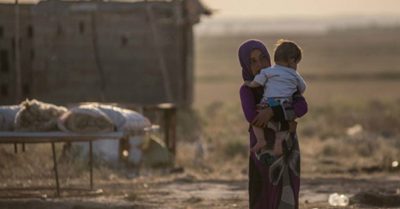Does the U.S. Have the Right to Impunity?

The United States Army has established a long history of war crimes, beginning with the genocide of native peoples in the North America, through those committed in Afghanistan, Iraq, and Syria, more recently.
Usually, the U.S. government, the armed forces, and the press are able to cover up the atrocities committed. To cite a few examples from the war in Iraq, on November 19, 2005, U.S. troops entered the town of Haditha, killing individuals indiscriminately. Aws Fahmi, a witness to the massacre, saw Marines murder members of three families, and heard his neighbor beg in English for his life and those of his loved ones, including his daughters, 14, 10, five, three and one years of age.
Nine-year-old Eman Walid Abdul-Hameed recounted that the Marines broke into his home around 7:00 am, saying that they “entered the bedroom where my father was praying and shot him. They went into my grandmother’s bedroom and killed her without a thought. They threw a grenade under my grandfather’s bed.”
The attack lasted five hours and the Marines killed a total of 24 civilians.
On November 13, 2006, U.S. troops opened tank fire on the Al-Dhubat neighborhood of Ramadi and killed some 35 people, all civilians. Haji Jassim, 60, told Inter Press Service that residents “were not allowed to go near the houses to rescue the wounded, so many bled to death.”
In November of 2004, U.S. forces began Operation Phantom Fury against the city of Fallujah. Over ten days, they destroyed the city and killed thousands of people, using white phosphorus munitions prohibited by international treaties.
A video of the operation, recorded by NBC correspondent Kevin Sites, shows several wounded Iraqis in a mosque, guarded by Marines. The detainees had been interrogated and were left on the ground overnight. A Marine pointed to a wounded man lying on the floor and said: “He’s not dead, just pretending”. The soldier raises his rifle and shoots him in the head. Another Marine shouts: “Well, he’s dead now.” The execution of a prisoner, especially a wounded one, is a war crime according to the Geneva Conventions.
The United States deployed troops in Afghanistan in 2001, shortly after the 9/11 Twin Towers attack, reaching 100,000 soldiers. Several international organizations have denounced the actions of U.S. military forces and the CIA in that country, including the International Criminal Court (ICC) based in The Hague, which has processed hundreds of allegations of torture and assassinations of civilians.
According to information available, Gambian jurist Fatou Bensouda, chief prosecutor of the ICC, stated that members of the armed forces inflicted “torture, cruel treatment, and offenses against the dignity of persons, in Afghan territory,” acts that qualify, according to International Law, as war crimes.
The response of the United States was not long in coming: The International Criminal Court’s chief prosecutor, Fatou Bensouda, was denied a visa, preventing him from entering the United States.
Washington has not ratified the Rome Statute, the ICC’s founding text and has taken the position that its soldiers will not be tried by international organizations.
John Bolton, National Security Advisor to President Donald Trump, stressed in a speech at the Federalist Society, a conservative Washington forum,
“We will not cooperate with the ICC. We will provide no assistance to the ICC. We will not join the ICC. We will let the ICC die on its own.”
Last March, Secretary of State Mike Pompeo indicated his intention to refuse entry to ICC officials to investigate U.S. personnel in relation to Afghanistan. The Court is not directly affiliated to the United Nations, but the chief prosecutor informs the General Assembly of its activities.
Under this pressure, the ICC declined to investigate the allegations of atrocities committed by the U.S. in that country and President Trump praised the decision:
“This is a great international victory, not only for these patriots, but also for the rule of law.”
For her part, the prosecutor insisted that there is “a reasonable basis to believe” that war crimes and crimes against humanity were committed in Afghanistan, and that all parties must be investigated, including members of the U.S. Armed Forces and the CIA.
*
Note to readers: please click the share buttons below. Forward this article to your email lists. Crosspost on your blog site, internet forums. etc.
Featured image is from Oxfam International

